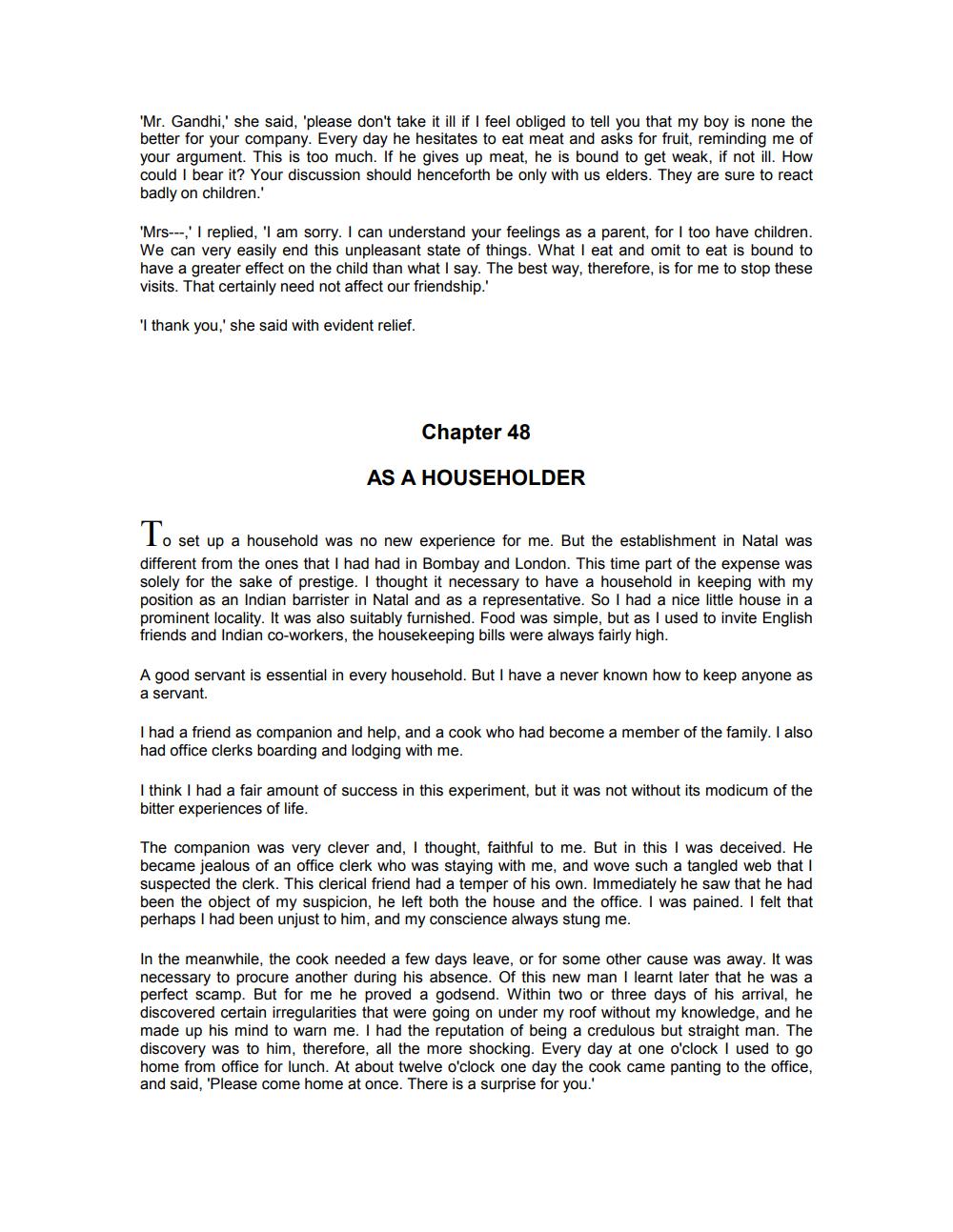________________
'Mr. Gandhi,' she said, 'please don't take it ill if I feel obliged to tell you that my boy is none the better for your company. Every day he hesitates to eat meat and asks for fruit, reminding me of your argument. This is too much. If he gives up meat, he is bound to get weak, if not ill. How could I bear it? Your discussion should henceforth be only with us elders. They are sure to react badly on children.'
'Mrs--,' I replied, 'I am sorry. I can understand your feelings as a parent, for I too have children. We can very easily end this unpleasant state of things. What I eat and omit to eat is bound to have a greater effect on the child than what I say. The best way, therefore, is for me to stop these visits. That certainly need not affect our friendship.'
'I thank you,' she said with evident relief.
Chapter 48
AS A HOUSEHOLDER
To set up a household was no new experience for me. But the establishment in Natal was different from the ones that I had had in Bombay and London. This time part of the expense was solely for the sake of prestige. I thought it necessary to have a household in keeping with my position as an Indian barrister in Natal and as a representative. So I had a nice little house in a prominent locality. It was also suitably furnished. Food was simple, but as I used to invite English friends and Indian co-workers, the housekeeping bills were always fairly high.
A good servant is essential in every household. But I have a never known how to keep anyone as a servant.
I had a friend as companion and help, and a cook who had become a member of the family. I also had office clerks boarding and lodging with me.
I think I had a fair amount of success in this experiment, but it was not without its modicum of the bitter experiences of life.
The companion was very clever and, I thought, faithful to me. But in this was deceived. He became jealous of an office clerk who was staying with me, and wove such a tangled web that I suspected the clerk. This clerical friend had a temper of his own. Immediately he saw that he had been the object of my suspicion, he left both the house and the office. I was pained. I felt that perhaps I had been unjust to him, and my conscience always stung me.
In the meanwhile, the cook needed a few days leave, or for some other cause was away. It was necessary to procure another during his absence. Of this new man I learnt later that he was a perfect scamp. But for me he proved a godsend. Within two or three days of his arrival, he discovered certain irregularities that were going on under my roof without my knowledge, and he made up his mind to warn me. I had the reputation of being a credulous but straight man. The discovery was to him, therefore, all the more shocking. Every day at one o'clock I used to go home from office for lunch. At about twelve o'clock one day the cook came panting to the office, and said, 'Please come home at once. There is a surprise for you.'




